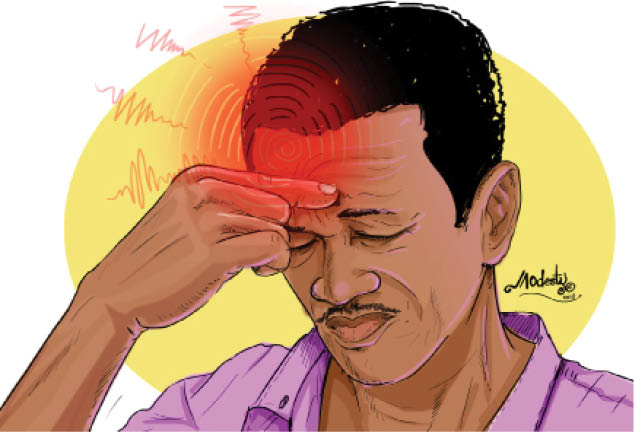Researchers develop drug to reverse memory loss
Set for human trials A new drug that can reverse memory loss due to aging and depression has been developed by scientists. As people get older, especially above the age of 50, they begin to experience forgetfulness almost on a daily basis. Some people misplace things, forget faces and even why they do certain things. […]

- Set for human trials
A new drug that can reverse memory loss due to aging and depression has been developed by scientists.
As people get older, especially above the age of 50, they begin to experience forgetfulness almost on a daily basis. Some people misplace things, forget faces and even why they do certain things.
The research has shown that it may soon be possible to restore brain cells to their once youthful vigour.
Over seven million Nigerians are estimated to suffer from depression. “Depression is a common mental health problem that affects mood, resulting in a change in the way a person feels, thinks and acts and his sense of well-being. Without treatment, a depressed person has a 20% chance of committing suicide,” said Dr Akin Moses of the Society of Family Physicians of Nigeria.
Moses said in Nigeria, only one-fifth of those with a depressive episode receive any treatment and only 1 in 50 receive treatment that is minimally adequate.
Many elderly persons also suffer from dementia in the country with a large number of their families erroneously thinking it is part of the normal aging process.
Dr Taiwo Oduguwa, a consultant psychiatrist at the Federal Neuro Psychiatric Hospital, Yaba, Lagos said out of all psychiatric cases, dementia accounts for 22.4 percent.
The new drug, which was developed by scientists at Toronto’s Centre for Addiction and Mental Health, Canada designed to reverse the everyday forgetfulness that sets in at middle age, will soon be entering clinical trials on humans.
The researchers who presented their study during the recent American Association for the Advancement of Science (AAAS) Annual Meeting in Washington DC, United States also hope that the drug may also help treat the earliest stages of Alzheimer’s disease.
At the moment, there are no drugs to treat memory loss from aging and depression .
It is hoped the research can produce a daily pill that could keep older brains sharp and a potential treatment for the mild cognitive impairment seen in the very early stages of Alzheimer’s disease.
According to the lead scientist of the study, Dr Etienne Sibille, “Currently there are no medications to treat cognitive symptoms such as memory loss that occur in depression, other mental illnesses and aging.”
He said: “Our findings have direct implications for poor cognition in normal aging. This would include learning and memory, executive functions, decision making, and planning. The first indication after that will be testing it in adult subjects with depression. This will be followed by studies in older age.
“Looking into the future, one may suggest anybody over the age of 55-60 years of age who may be at risk of cognitive problems later on, could benefit from this treatment. Ideally it will be one pill a day.”
The new drug is a type of benzodiazepiene – better known as the anti-anxiety and depression drug, Valium.
However, unlike drugs such as Valium, which have a broad range of effects, the ‘tweaked’ version of the drug is able to specifically target impairments in brain cells related to memory, Dr Sibille said.
Dr Sibille’s team identified a malfunction in chemicals that are used to transmit messages in the brains of mice and then invented a new chemical compound to specifically target the impairment in brain cells.
The new molecules reversed memory loss in mice that had undergone stress – and 30 minutes after treatment the mice performed at normal levels in their abilities to remember the layout of mazes.
In another experiment, memory declines seen in ageing mice were rapidly reversed and performance increased to 80 per cent after the drug was given.
The authors said the performance of the mice was ‘essentially reaching levels seen in youth or earlier stages of adulthood’. The improvement lasted over two months with daily treatment.
Dr Sibille said: “The aged cells regrew to appear the same as young brain cells, showing that our novel molecules can modify the brain in addition to improving symptoms.
“We’ve shown that our molecules enter the brain, are safe, activate the target cells and reverse the cognitive deficit of memory loss.”
